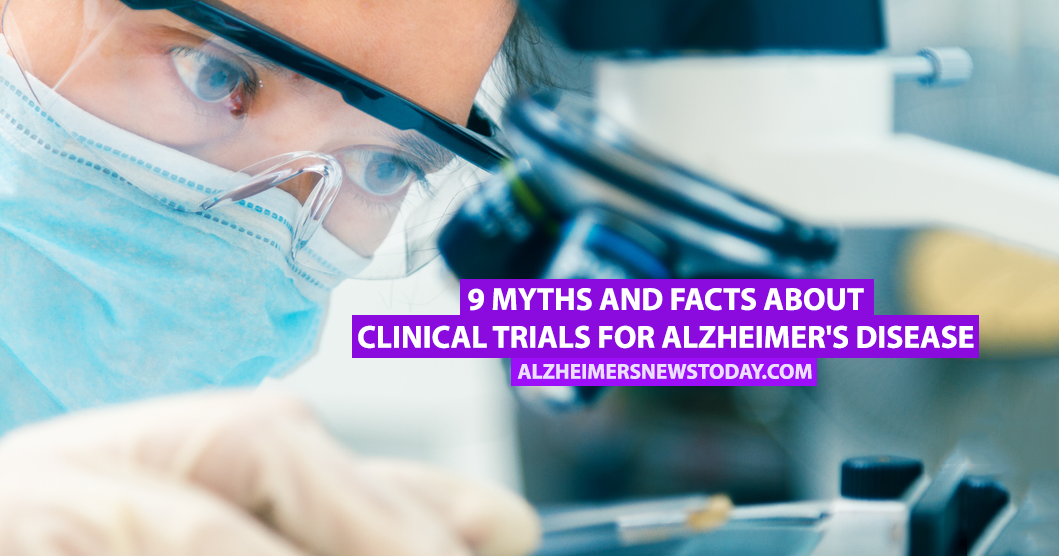9 Myths and Facts About Clinical Trials for Alzheimer’s Disease

Clinical trials are essential to help improve treatments, therapies and diagnostic techniques for Alzheimer’s disease and hopefully, one day find a cure. However, there’s a lot of misinformation out there so we’ve put together a list of myths and facts about clinical trials for Alzheimer’s disease based on information from the Alzheimer’s Association.
Myth: There are already lots of participants for clinical trials, so I won’t be needed.
Fact: Clinical research is ongoing, so there will always be a need for participants. There are currently more than 250 clinical trials that are recruiting people with dementia, those who are at an elevated risk of developing dementia, and also caregivers of people with dementia and Alzheimer’s.
Myth: I am at too advanced a stage of Alzheimer’s to participate in a clinical trial.
Fact: There are clinical trials for all stages of the disease, including the very late stages. Your participation could help thousands of others.
Myth: Participating in a clinical trial could be dangerous as they use unproven medications and treatments.
Fact: While there is an element of risk with any clinical trial, there are many safeguards put in place to protect those who participate; participants are regularly monitored and can withdraw at any time. However, all drugs and treatments have potential side effects, some of which could be life-threatening.
MORE: Schizophrenia treatment seen to erase agitation in Alzheimer’s patients in Phase 3 clinical trial.
Myth: I won’t receive the same standard of care I get with my doctor if I enroll in a clinical trial.
Fact: The standard of care for participants in clinical trials is very high and patients often have comparatively better care in a trial than those not in a trial.
Myth: If I enroll in a clinical trial I will only receive a placebo treatment.
Fact: In randomized clinical trials, half of the participants will get the new treatment and the other half will either get a placebo or remain on their current medication. You will not know which one you’ve received until the end of the trial, which may make some patients uncomfortable.
Myth: The clinical trial will contain elements of painful or intrusive procedures.
Fact: There are many different types of clinical trials, most of which do not include any painful or uncomfortable procedures. Work with your doctor to find a clinical trial that most suits your wishes and needs.
MORE: Bryostatin appears to improve cognition in patients with moderate to severe Alzheimer’s.
Myth: It’s expensive to join a clinical trial.
Fact: Clinical trials operate in different ways. Some are free, others reimburse expenses such as travel costs, some may offer compensation to the participants.
Myth: I have other health issues so I won’t be accepted into a clinical trial.
Fact: All clinical trials have different criteria for participants. Some may not want those who are suffering from other major health problems, whereas some may actively encourage these participants.
Myth: My doctor will tell me about any clinical trials I can participate in.
Fact: There are so many clinical trials that it is unlikely that your doctor will be aware of them all. Using a Trial Match site will help you see what clinical trials are available locally or online.
MORE: Latest clinical data on Namenda for Alzheimer’s confirms beneficial effects.
Alzheimer’s News Today is strictly a news and information website about the disease. It does not provide medical advice, diagnosis or treatment. This content is not intended to be a substitute for professional medical advice, diagnosis, or treatment. Always seek the advice of your physician or another qualified health provider with any questions you may have regarding a medical condition. Never disregard professional medical advice or delay in seeking it because of something you have read on this website.






